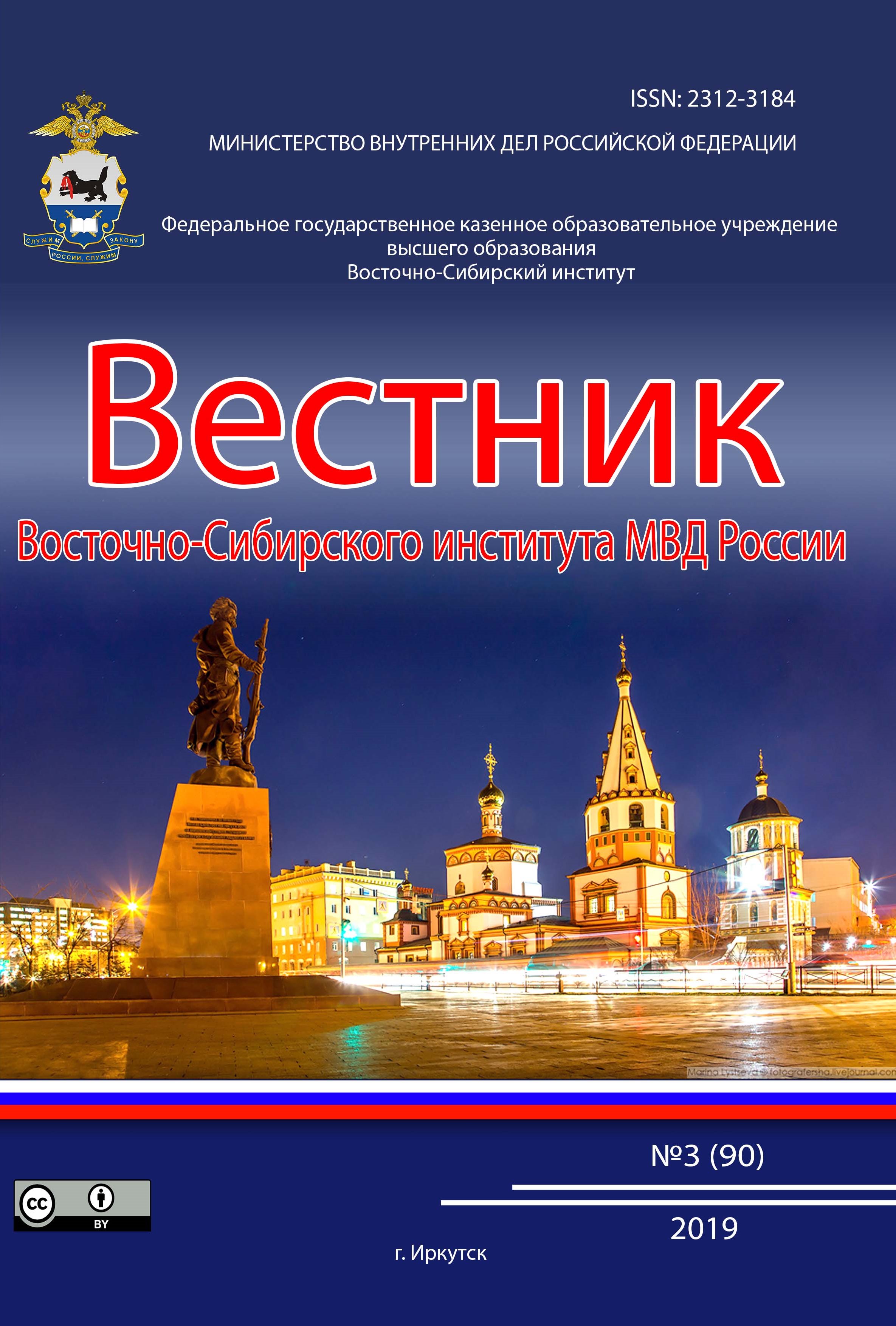Russian Federation
Introduction. The article considers the problems and prospects of using digital traces in the activities of operational units. In the context of the rapid development of information technology and the widespread use of mobile devices, the issues of data processing and analysis are becoming especially relevant for law enforcement agencies. Digital traces are an important tool in the fight against dynamically developing cybercrime. The authors focus on various aspects of digital traces, such as their nature, form and sources, as well as methods of their collection and analysis. The main problems faced by operational units are discussed, including the lack of standardized approaches to data processing, privacy issues and legal restrictions. In conclusion, the authors highlight the prospects for integrating modern technologies, such as machine learning and artificial intelligence, into the processes of digital trace analysis, which can significantly increase the efficiency of operational units and improve their interaction with other authorities. Thus, the article is a comprehensive analysis of current issues and provides useful recommendations for the further development of the practice of using digital traces in operational activities. Materials and methods. The regulatory framework of the study included the Constitution of the Russian Federation; operational-search legislation; other federal laws; acts of official interpretation of norms; by-laws. In addition, the methodological basis of the study included the general dialectical method of scientific cognition, general scientific methods of cognition and some specific scientific methods, including: analysis, comparison, generalization of operational-investigative and expert practice, literary and Internet sources. The results of the study. The necessity of further improvement of criminal and criminal-procedural legislation concerning the procedure of storage of electronic information carriers and digital traces contained on them is substantiated. Supplements to Articles 272 of the Criminal Code of the Russian Federation and 164.1 of the Criminal Procedure Code of the Russian Federation are proposed. Also, amendments are proposed to Article 273.1 of the Criminal Code of the Russian Federation providing for liability for posting on the Internet software by means of which access to information resources and information and telecommunication networks is provided, access to which is restricted on the territory of the Russian Federation. Conclusions and conclusions. It was concluded that a number of issues concerning procedural procedures for working with electronic information carriers remain unresolved and debatable, but it is an indisputable fact that institutions for working with them will continue to develop in the coming years.
digital traces, investigation and disclosure of crimes, traces of crime, cybercrime, digital crime, computer crimes.
1. Porokhovoy E. Yu. On some problems of interaction between states in the investigation of transnational cybercrimes / E. Yu. Porokhovoy, V. D. Bykov // Scientific digest of the East Siberian Institute of the Ministry of Internal Affairs of Russia. - 2022. - No. 2 (16). - P. 82-91.
2. Digital currency and digital financial rights as a subject and means of committing crimes / O. P. Gribunov, P. V. Nikonov, S. V. Parkhomenko [et al.]. - Irkutsk: Irkutsk Law Institute (branch) of the Federal State Budgetary Educational Institution of Higher Education "University of the Prosecutor's Office of the Russian Federation", 2023. - 170 p.
3. Denisov, I. M. Forensic examination of digital information / I. M. Denisov, M. I. Leshchinsky // International Journal of Humanities and Natural Sciences. - 2023. - No. 1-1 (76). - P. 139-141.
4. Gavrilin Yuri Viktorovich. Counteracting the digital transformation of drug crime (based on the results of the All-Russian online seminar) // Proceedings of the Academy of Management of the Ministry of Internal Affairs of Russia. 2020. No. 4 (56). P. 122-129.
5. Lyanov, M. M. The process of detecting virtual traces during crime investigation / M. M. Lyanov // Legal science and law enforcement practice. - 2021. - No. 4 (58). - P. 97-106.
6. Timofeev, S. V. Deanonymization of the Internet user as a method of operational-search counteraction to drug crime / S. V. Timofeev // Jurist-Pravoved. - 2020. - No. 2 (93). - P. 170-174.
7. Khanakhmedov, A. S. Fundamentals of counteracting cybercrime in the territory of the Russian Federation / A. S. Khanakhmedov // Bulletin of the Ufa Law Institute of the Ministry of Internal Affairs of Russia. - 2019. - No. 3 (85). - P. 44-48.
8. Reshnyak, M. G. On some features of solving crimes in the field of high information technologies / M. G. Reshnyak, D. A. Pavlova // Business in law. Economic and legal journal. – 2015. – No. 5. – P. 125-129.
9. Molchanova T. V., Aksenov V. A. Factors determining fraud committed using information and telecommunication technologies // Bulletin of Economic Security. – 2020. – No. 2. – P. 93-98.











